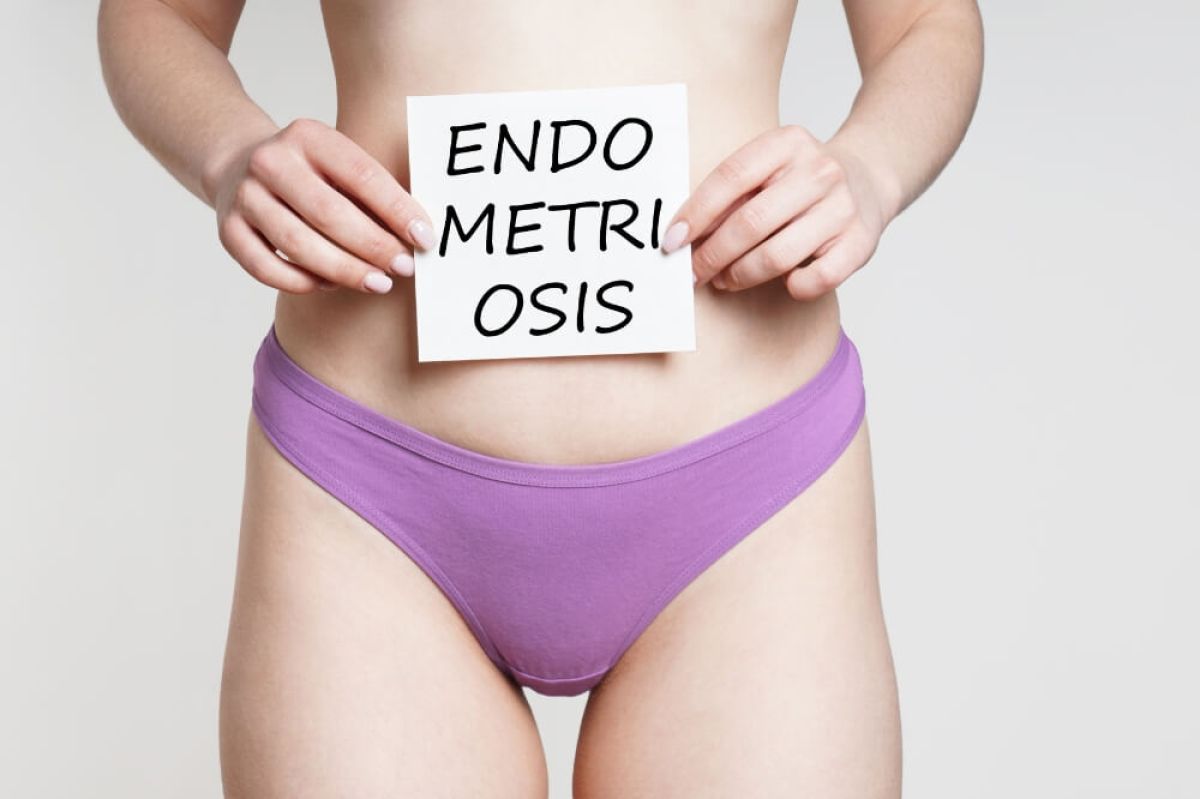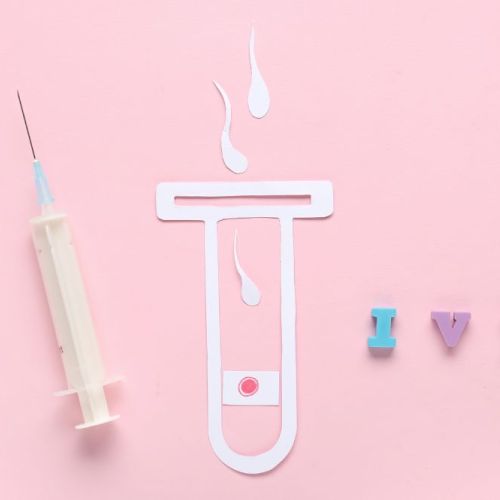What is the Best Fertility Treatment for Endometriosis?

Endometriosis is a disorder that’s often painful in which tissue that usually lines the inside of the uterus grows outside the uterus. This condition can make getting pregnant challenging since fallopian tubes, ovaries, and surrounding areas may be inflamed or scarred. As many as half of the women with this condition struggle with infertility. What is the best fertility treatment for endometriosis?
A variety of forms of assisted reproductive technologies may make it possible for women with endometriosis to attain a successful pregnancy. The experts at the Center for Reproductive Health can determine the best fertility treatment for you based on your unique situation.
Determining the Severity of Endometriosis
To find the best fertility treatment for you if you have endometriosis, your doctor needs to determine the severity of your condition. In the early stages of endometriosis, not many areas have been affected and there’s no scar tissue. In the later stages of endometriosis, tissue may be implanted in extensive areas of the abdomen and there may be scar tissue.
Medicine, surgery, or both may be recommended to treat your endometriosis. If your endometriosis is at an early stage and you’re under the age of 35, surgical removal of the tissue may be all the treatment you need for pregnancy to occur naturally. This type of surgery is usually done laparoscopically.
In Vitro Fertilization
In some women, even if endometrial tissue is removed, it grows back, which may lead to the need for other types of fertility treatment. In severe endometriosis, there may be damage to the ovaries or eggs, and the fallopian tubes may be blocked or damaged. Medication to stimulate the ovaries may help in some cases, but there’s a good chance that women with infertility related to endometriosis may need to consider in vitro fertilization (IVF) to attain a successful pregnancy.
IVF can bypass some of the fertility problems caused by endometriosis. There are several steps involved in treatment using IVF. Your doctor may give you injections of medication to trigger ovulation and encourage multiple eggs to be produced in the ovaries. Eggs are removed from the ovaries by your fertility doctor during a minor surgical procedure. These eggs are combined with sperm from your partner or from a sperm donor in a lab where fertilized eggs can be monitored to see if fertilization has been successful.
Fertilizing eggs in a lab setting minimizes the risk of egg or sperm damage from endometriosis. Once fertilized eggs have grown into embryos, one or more embryos are implanted directly into the uterus, which bypasses blocked fallopian tubes. Extra embryos can be frozen for future use or can be donated to another couple. About twelve days after embryos are implanted, a pregnancy test is done. If you haven’t gotten pregnant, you’ll discuss with your fertility doctor whether to try another cycle of IVF.
The fertility specialists at the Center for Reproductive Health consider your endometriosis along with other factors such as your age and overall health when determining the best type of fertility treatment for you. Call today to learn more or to schedule a consultation.
Eliran Mor, MD
Reproductive Endocrinologist located in Encino, Valencia & West Hollywood, CA
FAQ
What does a reproductive endocrinologist and infertility specialist do?
Reproductive endocrinology and Infertility is a sub-specialty of Obstetrics and Gynecology. In addition to managing medical and surgical treatment of disorders of the female reproductive tract, reproductive endocrinologist and infertility (REI) specialists undergo additional years of training to provide fertility treatments using assisted reproductive technology (ART) such as in vitro fertilization.
Reproductive endocrinologists receive board certification by the American Board of Obstetrics and Gynecology in both Obstetrics and Gynecology and Reproductive Endocrinology and Infertility.
When should I see an REI specialist?
In general, patients should consider consulting with an REI specialist after one year of trying unsuccessfully to achieve pregnancy. The chance of conceiving every month is around 20%, therefore after a full year of trying approximately 15% of couples will still not have achieved a pregnancy.
However, if a woman is over the age of 35 it would be reasonable to see a fertility specialist earlier, typically after 6 months of trying.
Other candidates to seek earlier treatment are women who have irregular menses, endometriosis, fibroids, polycystic ovary syndrome (PCOS), women who have had 2 or more miscarriages, or problems with the fallopian tubes (prior ectopic pregnancy).
What are the reasons we are having trouble conceiving?
Approximately 1/3 of the time cause for infertility is a female factor, 1/3 of the time a male factor, and the remaining 1/3 a couples’ factor.
At CCRH, we emphasize the importance of establishing a correct diagnosis. Both partners undergo a comprehensive evaluation including a medical history and physical exam.
Furthremore, the woman’s ovarian reserve is assessed with a pelvic ultrasound and a hormonal profile. A hysterosalpingogram (HSG) will confirm fallopian tube patency and the uterine cavity is free of intracavitary lesions. A semen analysis is also obtained to evaluate for concentration, motility, and morphology of the sperm.
Additional work up is then individualized to direct the best possible treatment option for each couple.
What is IVF? What is the process like?
In vitro fertilization (IVF) is the process that involves fertilization of an egg outside of a woman’s body.
The process starts with fertility drugs prescribed to help stimulate egg development. In your natural cycle, your body is only able to grow one dominant egg, but with stimulation medication we can recruit multiple eggs to continue to grow. After about 8-10 days of stimulation, the eggs are surgically retrieved and then fertilized with sperm in a specialized laboratory. Fertilized eggs are then cultured under a strictly controlled environment within specialized incubators in the IVF laboratory for 3-5 days while they develop as embryos. Finally, embryos (or an embryo) are transferred into the uterine cavity for implantation.
Should I have IVF?
Before deciding if IVF is the right choice, it’s important to sit down with an REI specialist to discuss available treatment options. For some people, other methods such as fertility drugs, intrauterine insemination (IUI) may be the best first choice treatment. At CCRH, we believe each individual couple is unique and not everyone needs IVF.
Is the IVF procedure painful?
While not painful, the fertility medications may some side effects including headaches, hot flashes, mood swings, and bloating. The injection sites may also bruise.
Will IVF guarantee a baby?
Unfortunately, no. Many people think once they start IVF it’s a matter of time that they will be pregnant and have a baby. But according to national statistics per the Society of Assisted Reproduction (SART), on average 40% of assisted reproduction cycles achieve live births in women under age 35. The chances of success then continue to decrease with advancing age.
At CCRH, we employ only evidence-based interventions to ensure patient safety and optimal outcome. While we cannot guarantee a baby, we guarantee that you will receive the best, most advanced, personalized care to help you maximize your chance of a baby.
What is the success rate for IVF?
The average IVF success rate (success measured in live birth rate) using one’s own eggs begins to drop around age 35 and then rapidly after age 40. This is due to the decline in egg quantity and egg quality as a woman ages.
Our clinic’s success rate consistently beats the national average year after year.
Do insurance plans cover infertility treatment? How much does IVF cost?
Individual insurance plans often do not have any coverage for infertility treatments. If you have a group plan, you can call members services to see if they have coverage for infertility (including consultation/workup and IVF).
After your consultation with our REI specialist, one of our dedicated account managers with sit with you to go over the cost of treatment.




